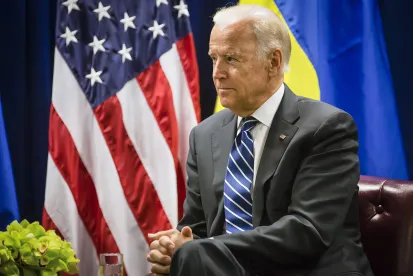On February 4, 2022, President Biden signed an Executive Order on Use of Project Labor Agreements for Federal Construction Projects (the “Order”), which requires the federal government to require a project labor agreement (“PLA”) before awarding any “large-scale construction contract,” defined as a contract for which the estimated cost is $35 million or more. The Order’s effective date is immediate, but some delay will necessarily occur before implementation, as the Federal Acquisition Regulatory Council must propose appropriate regulations by June 4, 2022, and the Director of the Office of Management and Budget must issue related guidance.
PLAs control the terms and conditions of employment of workers on specific construction projects, including wages, hours, working conditions, dispute resolution methods, and by banning work stoppages and strikes. PLAs are known as “umbrella” or “uber” collective bargaining agreements, because PLA contracts generally exist on top of any specific union trade agreements. Democrat politicians and unions often hail PLAs as alleviating the interconnected issues that often plague large, complicated construction projects where a work stoppage or dispute by one trade group may significantly impact the entire project. Meanwhile, Republican administrations and construction industry groups usually call for the rescission of PLA usage, citing increased costs and reduced competition amongst contractors.
The Order continues to make good on President Biden’s early promise to be the most “union friendly” president in history, and will affect an estimated $262 billion in federal construction contracting for nearly 200,000 workers.
Importantly, however, the Order does not require construction companies to unionize, it only binds a federal construction contractor’s employees to the terms of a PLA. PLAs must always contain: (1) guarantees against strikes, lockouts, and similar job disruptions; (2) prompt, mutually binding procedures for resolving labor disputes; (3) mechanisms for labor-management cooperation on “matters of mutual interest and concern, including productivity, quality of work, safety, and health”; and (4) terms that fully conform to federal law, regulations, other executive orders, and Presidential Memoranda.
There are a few exceptions to the PLA requirement. The Order will not mandate a PLA if doing so would:
-
Substantially reduce potential bidders,
-
Otherwise be inconsistent with federal law, or
-
Would result in inefficiency, such as projects of short duration and lacking complexity, only involving one craft or trade, or involving particularly specialized construction work.
Furthermore, a PLA will not be required based on unusual and compelling need, and other factors deemed acceptable by senior officials in federal agencies. No procedure has been announced for determining whether a project may be subject to an exception.
Perhaps most significantly, the Order will not travel downstream to projects controlled by state and/or local governments, even if those projects receive federal funding. Therefore, the Order will not affect the majority of projects that will be undertaken by state and local governments regarding the recent Infrastructure Investment and Jobs Act (2021).
In order to implement the Order, President Biden also provided for strategy training for the 40,000 federal contracting employees. Agencies will be required to report their use of PLAs on large-scale construction contracts, as well as any exceptions granted.




 />i
/>i
